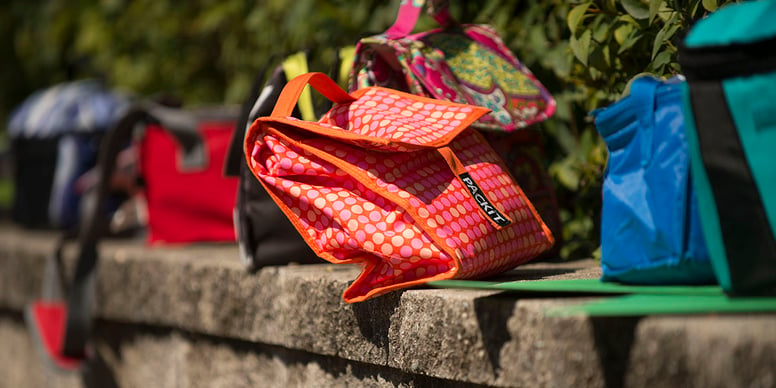
Children can learn to manage their own materials; a life skill that is important for future success.
Materials and time management are skills that need to be taught to your child
Find a central space to help your child manage all of their materials
My family is large. So we have lots of moving parts. The key to our day is rhythm. These are the things that get done no matter what else is planned. For us, the dining room table is where the magic and the mess occur.
Find your center of space.
Where is it for your family? Most say the kitchen is the heart of the home, and I agree. It is where we congregate. It is where the most mess is likely to occur. The bags, the papers, the piles. So next time you see the mess that needs to be addressed, pause. What is it and why does it land here?
Set clear routines and keep materials centralized
For children in the early lower school years who are figuring out how to prioritize what is important, their items need to be centralized.
- Is there a hook for each backpack?
- Is the bin of shoes close by?
- What about outerwear?
- Are the hooks and bins reachable by little hands?
Getting out the door with what we need is always a feat in and of itself with children; it is something that we as adults know establishes the tone to our own days. The night before is key. This takes time.
Maintain an organized space to make your life and your child's so much easier
Less is more. The more items there are, the more there is to do. So if you find your child struggling to find a matching shoe, the socks are never matched, and they can't decide which coat, there likely are just too many. Pare down. It will make your life and your child's so much easier.
- Weed out what is not worn, what is not selected.
- Remove unused items from the space.
- Store them somewhere else, out of sight, temporarily if you worry about them being missed.
- Then, see how this helps to build space and breathing room for your child.
Let your children "do" to help them learn new skills
Toddlers are able to match their shoes, put on their socks, and carry their own bags. Let them try; let them do.

- Yes, it will be faster initially to put on their socks so the seam lines up with their little toes and to put on their shoes securely on the appropriate feet, but they need to try, so they can ultimately "do."
- If your child places their shoes on the wrong feet, first look at their face. Are they beaming with pride, even with their sock bungled under the floppy velcro? If so, let it go.
- Give them a reassuring smile and watch and listen first. They may eventually ask if their shoes are on the right feet or you might find them quietly switching on their own. Let it be.
- Be the facilitator to their doing, but don't "do" for them. This takes strength. You can do it, as they too can.
- If the bags contain their belongings, then they can carry them. They can make two trips. They can make three.
implement Rhythms and Routines to strengthen skill development
Leaving home and returning can be the two rhythms you set to start.
When you return home, what does that look like? Everyone of walking age can return their items where they started.
- Shoes in the shoe bin, outerwear hung up, backpacks and lunch boxes emptied and returned.
- Where are the places? This will need to be modeled and shown.
- If your children are in the middle school and high school years you might receive pushback if the dumping of items at the door has been the habit or rhythm created. Push back is okay.
- Stay consistent. See it through. Do not do it for them.
Be present with your child as they learn and practice their new skills
At the end of each day, if your child is struggling with materials management, this next suggestion is key. Sit with each child.
- Sit down in that center space.
- Pick your time. Just like family dinner, don't skip it.
- It doesn't have to look pretty to be done well. It just needs to be done.
In our house, this is at our dining room table. My children range from toddler age to the prickly middle school years. It looks slightly different with each one, but the process is the same.
- You are there while they unpack their belongings from the day.
- If your child is struggling with materials, doing this weekly is too overwhelming, and it will take too long. Again, the daily is key. You are setting the rhythm.
- Just being there as everyone empties the items from the day is a huge materials management game-changer. Again, let them do.
- No matter the age, loose papers aren't a thing. They belong somewhere like the darn socks.
remind your child that less is more
- Ask, is this paper important? Or can we recycle this? Where does this one go?
- Extra supplies in backpacks tend to just provide added weight.
- Comb out any reams of paper, trash, packs of pencils, extra notebooks, let go of the "just in case." By having loads of just-in-case items, you are sending the message they cannot figure it out in real-time, but the reality is they can. Let them do.
keep in mind that Learning takes time
- Come in the door.
- Unpack your bags.
- You are there.
- You are the facilitator, not the doer.
Once everything is away--shoes, bags, etc.,--then comes the first part of "home time" whatever that might be. Maybe it is dinner, or playing outside, or moving to sports. Whatever it is, the added unpacking of the day is key.
- Once you have unpacked, your children are likely already thinking about tomorrow. This is ideal.
- Now what? This is time to look to tomorrow. Just one day at a time.
- Necessary items in the emptied bag right away, which is already hung up.
- Gameday tomorrow? Have your child start the hunt now. This shouldn't be you at 10:00 pm. We have all been there, but if you find yourself here, figure out how to back yourself out of this task. Reset your sails, and try again tomorrow.
Continue to support as your child builds their rhythm
Enter from the day, unpack the day, pack the necessary right away, before anything else. If there are papers that need to be completed at night, this is where they come out. In our house, they go right to the child's spot at the dinner table. Something special to share? That goes right to the spot at the table.
Tiny rhythms, the must-dos built into the everyday create the necessary heartbeat, the well-oiled cogs of the family unit. The ultimate goal is the achievement of everyone's doing, not just yours. Help them to do. Then let them.







